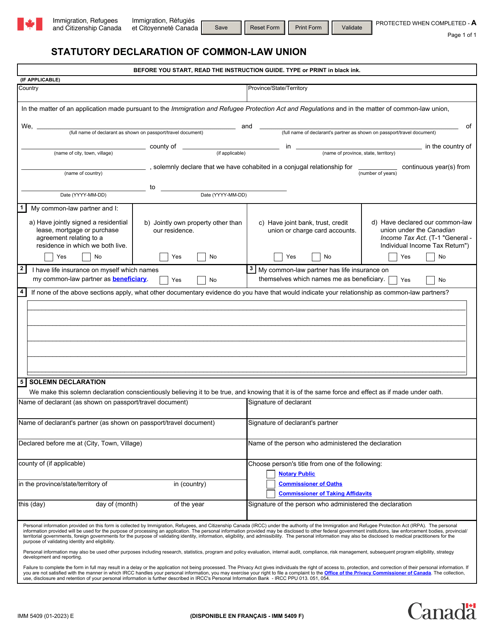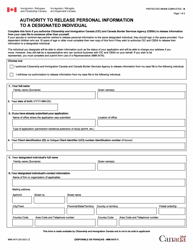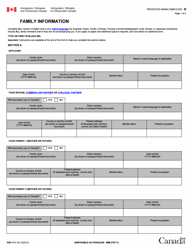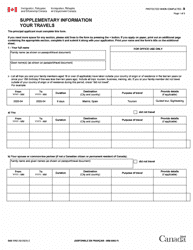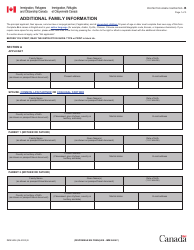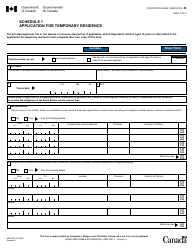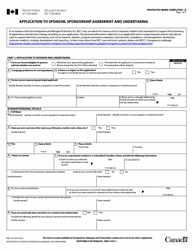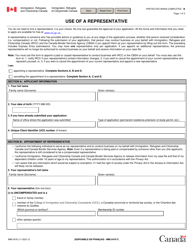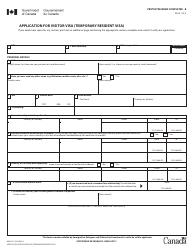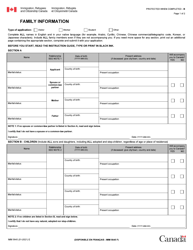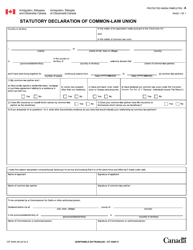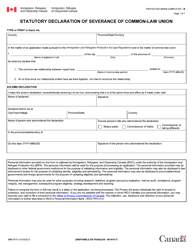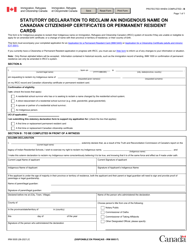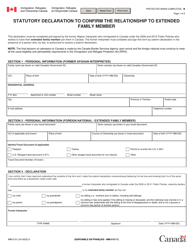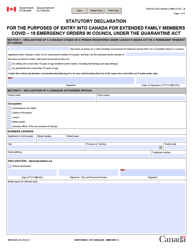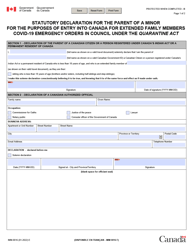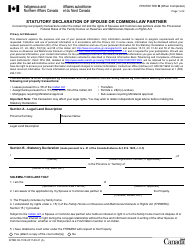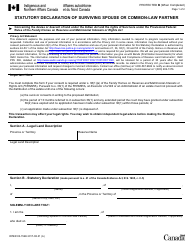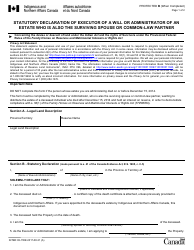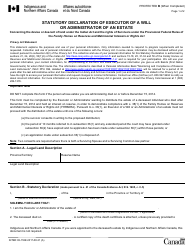To edit this document, please download and fill it out with Adobe Reader.
Form IMM5409 Statutory Declaration of Common-Law Union - Canada
Form IMM5409, Statutory Declaration of Common-Law Union, is used in Canada for couples who are in a common-law relationship and want to prove their commitment to each other for immigration or other legal purposes. It helps to establish that the couple has been living together in a conjugal relationship for a certain period of time.
The Form IMM5409 Statutory Declaration of Common-Law Union in Canada is filed by both partners in a common-law relationship.
Form IMM5409 Statutory Declaration of Common-Law Union - Canada - Frequently Asked Questions (FAQ)
Q: What is form IMM5409?
A: Form IMM5409 is the Statutory Declaration of Common-Law Union for Canada.
Q: What is a common-law union?
A: A common-law union is a relationship in which two people live together in a marriage-like arrangement without being legally married.
Q: When do I need to fill out form IMM5409?
A: You need to fill out form IMM5409 if you are in a common-law relationship and are sponsoring your partner for Canadian immigration.
Q: What information is required in form IMM5409?
A: Form IMM5409 requires you to provide personal information about yourself and your common-law partner, as well as details about your relationship.
Q: Can I submit form IMM5409 electronically?
A: No, form IMM5409 needs to be printed, signed, and submitted in paper format.
Q: Do I need to have the form notarized?
A: No, you do not need to have the form notarized, but you must complete the statutory declaration in front of a commissioner for oaths or a notary public.
Q: What is the purpose of form IMM5409?
A: The purpose of form IMM5409 is to provide evidence of a genuine and continuing common-law relationship when sponsoring a common-law partner for Canadian immigration.
Q: Are there any fees associated with form IMM5409?
A: No, there are no fees for form IMM5409. However, there may be other fees associated with the immigration application process.
Q: Do I need to include supporting documents with form IMM5409?
A: No, supporting documents are not required with form IMM5409. However, you may be asked to provide additional evidence of your common-law relationship during the immigration application process.
